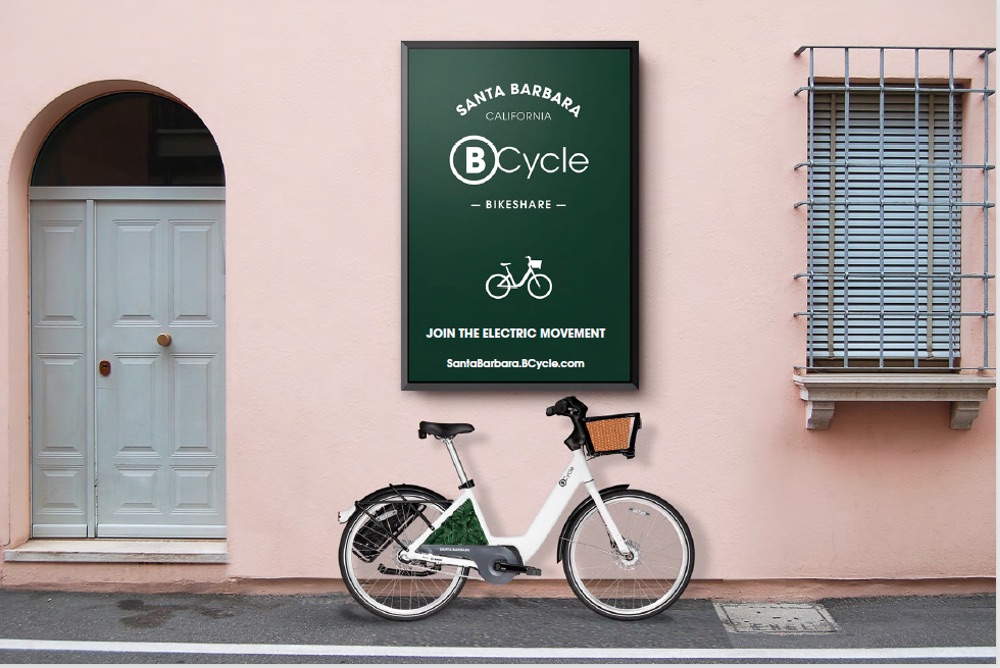On Wednesday, September 16, the City of Santa Barbara’s Historic Landmarks Commission (HLC) unanimously voted to deny a three-year bikeshare pilot project with BCycle. HLC members found the entire bikeshare project incompatible with El Pueblo Viejo because the bikeshare docks would be slate black and not Malaga green. When council approved the bikeshare vendor selection, City Staff and BCycle were also authorized to determine the locations of bikeshare docks without HLC approval. Instead of being flexible and exploring how the HLC could support future decisions about bikeshare dock locations in the El Pueblo Viejo historic district, the HLC voted to deny the project and sought to reimpose their authority to approve dock locations in the Viejo.
Community Environmental Council (CEC) is deeply disappointed in the HLC decision. Our nonprofit works with the community to advances rapid, equitable solutions to the climate crisis, so we could not help but notice that any consideration of the City’s climate action goals and clean transportation needs was noticeably absent from the HLC discussion.
Ultimately, the HLC decision fails to acknowledge the historic context of this collective moment: we are in the midst of a 100-year pandemic, at the beginning of a fire season that has already seen the worst documented wildfires in the western United States in recorded history, while we work to heal from a brutal history of racism and racial inequality that continues to this present day.
In this moment, we do not have an urgent need for Malaga-green bikeshare docks. However, we do have an urgent need for bold, intentional climate action that will advance social, economic, and environmental justice. Why is the HLC denying the BCycle project and triggering its appeal to a City Council that has much more pressing business to address — especially when council has already demonstrated their support for this project?
The proposed bikeshare program could help make clean transportation options more accessible and convenient for our diverse communities. It also has significant potential to support progress towards the newly adopted target for carbon neutrality in Santa Barbara by 2035. We won’t know the full potential of bikeshare in Santa Barbara until we launch a pilot program, and this is exactly what the BCycle project would do.
If this BCycle project denial stands, it will prevent implementation of a key recommendation for bikeshare in the city’s Climate Action Plan. We do not believe that the HLC wants to obstruct the city’s climate action efforts. One reason we preserve historic resources is to ensure that future generations can be connected to their history and carry it forward into the present day. We respectfully ask the HLC members reflect on their role and obligation to facilitate climate action with projects such as bikeshare, so the city can do its part to secure a livable climate for future generations. We need rapid and equitable climate action now to ensure that there are future generations that can carry our history forward.
We trust that our mayor and city councilmembers will bring this larger context into their final decision about the BCycle project. The three-year pilot project with BCycle will allow the city to learn how bikeshare can best serve our diverse communities and to assess bikeshare’s role in advancing the city’s climate action goals.
The decisions that we make today are future history, and the decision about bikeshare is one of many decisions that will determine how future generations view the city’s legacy of climate action. Today’s youth and future generations are watching and waiting.
Cameron Gray is the CEC’s senior transportation manager.

